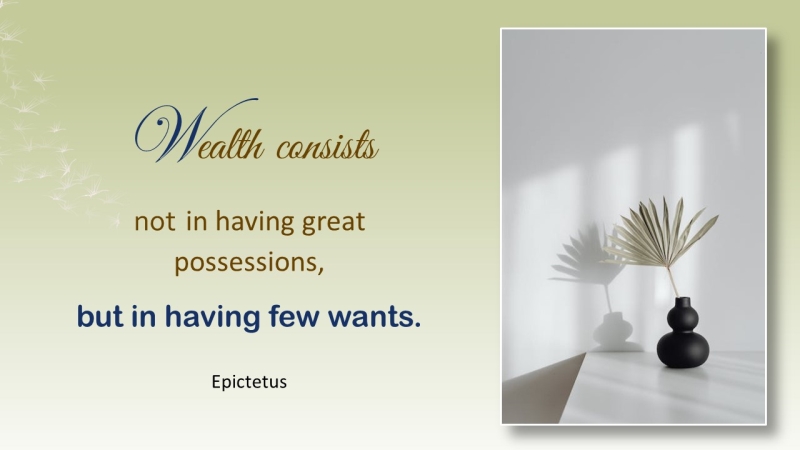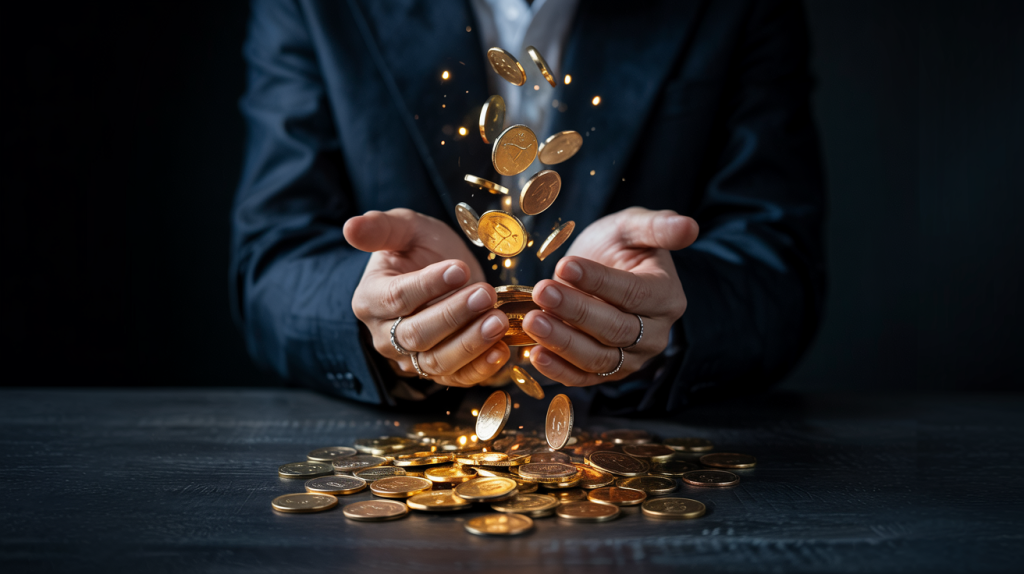IN THE WORLD WE LIVE IN NOW, WE ARE CONSTANTLY TOLD HOW IMPORTANT IT IS TO HAVE THINGS. From flashy cars to designer clothes, we are taught that these items are necessary for happiness and success.
However, true wealth consists of more than having great possessions but few wants. Adopting minimalism and living with fewer things can help you live a more meaningful and satisfying life. Here, we’ll explore the beauty of living with fewer possessions and provide tips on how to get started.
The Problem with Consumerism
Before fully embracing minimalism, we must first understand the problem with consumerism. The constant need for more possessions can hurt our mental health and the environment.
The Psychological Impact of Materialism
Researchers have found that materialism can lead to anxiety, depression, and low self-esteem, among other adverse psychological effects. This is because when we tie our self-worth to our possessions, we set ourselves up for disappointment. No matter how many possessions we acquire, we will always want more, leading to a never-ending cycle of unhappiness.
The Environmental Impact of Consumerism
From the manufacturing process to the disposal of items, the production of goods has a significant carbon footprint. The constant need for more possessions also dramatically impacts the environment. We can help the environment and be more sustainable by reducing how much we use and how many things we own.
The Benefits of Living with Fewer Possessions
Now that we understand consumerism’s problems let’s explore the benefits of living with fewer possessions.
Increased Financial Freedom
One of the most significant benefits of minimalism is increased financial freedom. By reducing our spending and living with fewer possessions, we can save more money and reduce our debt. This financial freedom can open up new opportunities, such as the ability to travel or start a new business.
Less Stress and Anxiety
Living with too many possessions can be overwhelming and stressful. We can create a more peaceful and calming environment by decluttering our homes and living with fewer possessions. This can reduce stress and anxiety, allowing us to focus on what truly matters.
More Time for Meaningful Experiences
When we constantly chase material possessions, we can miss out on meaningful experiences in life. By living with fewer possessions, we can free up our time and energy to pursue our passions and spend time with loved ones. This has the potential to make one’s life happier and more complete.
How to Start Living with Fewer Possessions
Let’s look at how to get started now that we’ve established the benefits of living with fewer possessions.
Tips for Decluttering Your Home
Decluttering your home can be overwhelming, but it’s essential to embracing minimalism. Here are some tips to get started:
Start small: Begin with one room or drawer at a time.
Use the four-box method: Label four boxes as “keep,” “donate,” “sell,” and “trash,” and sort through your possessions accordingly.
Be ruthless: Ask yourself if each item truly brings you joy or serves an essential purpose. If not, it’s time to let it go.
Consider sentimental items: Sentimental items can be challenging to let go of, but consider taking a photo of the article to remember it instead.
Strategies for Resisting the Urge to Buy Unnecessary Items
Living with fewer possessions requires a shift in mindset. Here are some strategies for resisting the urge to buy unnecessary items:
Practice mindfulness: Before making a purchase, take a moment to consider if the item truly aligns with your values and goals.
Create a budget: Set a budget for yourself and stick to it. This can help you resist the temptation to make impulse purchases.
Avoid advertising: Unsubscribe from marketing emails and avoid browsing online stores to reduce exposure to advertising.
Practice gratitude: Focus on being grateful for what you already have rather than your lack.
Embracing a Minimalist Lifestyle
Living with fewer possessions is not just about decluttering and resisting the urge to buy more. It’s about embracing a minimalist lifestyle. Here are some ways to do this:
Focus on experiences, not possessions: Instead of buying material possessions, focus on adventures such as travel or trying new activities.
Practice gratitude: Enjoy daily appreciating the people and things in your life.
Simplify your life: Consider simplifying your life in other ways, such as reducing your schedule or simplifying your meals.
Overcoming Common Obstacles
Embracing a minimalist lifestyle can be challenging. Here are some common obstacles and how to overcome them:
Sentimental items: Sentimental items can be challenging to let go of. Consider taking a photo of the article to remember it instead.
Family members who don’t share your values: Not everyone in your life may understand or embrace minimalism. Focus on your values and try to lead by example.
Feeling overwhelmed: Decluttering your home can be overwhelming. Remember to start small and take breaks when needed.
The Beauty of Living with Fewer Possessions
Living with fewer possessions may seem daunting initially, but the benefits are numerous. By embracing minimalism, we can reduce our impact on the environment, increase our financial freedom, and focus on what truly matters in life.
Living with fewer possessions is not just about decluttering and resisting the urge to buy more. It’s about embracing a minimalist lifestyle and finding joy in the simple things. Living with fewer possessions can create more space for happiness and meaning. As Hemingway once said, “Happiness in intelligent people is the rarest thing I know.”
Sustainable Living
One significant benefit of having fewer things is that we have less of an effect on the environment. The less we consume, the less we waste, and the less we harm the planet. Here are some ways minimalism promotes sustainable living:
Reducing waste: By buying less, we create less waste. This includes physical destruction and the waste generated in producing and transporting goods.
Energy conservation: The less we consume, the less energy we use. This includes energy used in producing, transporting, and storing goods.
Supporting sustainable practices: By buying fewer goods, we can focus on helping companies prioritize sustainability and ethical rules.
Financial Freedom
Another significant benefit of living with fewer possessions is increased financial freedom. The less money we spend on material possessions, the more we have to invest in experiences, savings, and other priorities. Here are some ways minimalism promotes financial freedom:
Reducing debt: By buying less, we can reduce our debt and financial obligations.
Saving money: By not buying unnecessary items, we can save more money for the things that truly matter, such as travel or retirement.
Prioritizing experiences: Investing in ventures rather than material possessions can create memories and happiness that last longer than any physical item.
Finding Joy in the Simple Things
Finally, living with fewer possessions allows us to focus on what truly matters. Reducing clutter in our homes and lives can create space for joy, meaning, and connection. Here are some ways minimalism promotes finding joy in the simple things:
Prioritizing relationships: We can deepen our relationships with loved ones by focusing on experiences and connections rather than material possessions.
Cultivating mindfulness: Living with fewer possessions can help us develop mindfulness and appreciation for the present moment.
Embracing imperfection: By letting go of the need for perfection, we can find beauty and joy in the wrong, simple things in life.
Conclusion
In conclusion, living with fewer possessions is not just a trend or a fad. Promoting sustainability, financial freedom, and joy is a powerful way. By embracing a minimalist lifestyle, we can create space for what truly matters and find happiness in the simple things. By living with fewer possessions, we can create a whole life in broken places and find beauty in the simplicity of everyday living. As Hemingway once said, “The world breaks everyone, and afterward, some are strong in the broken places.”




